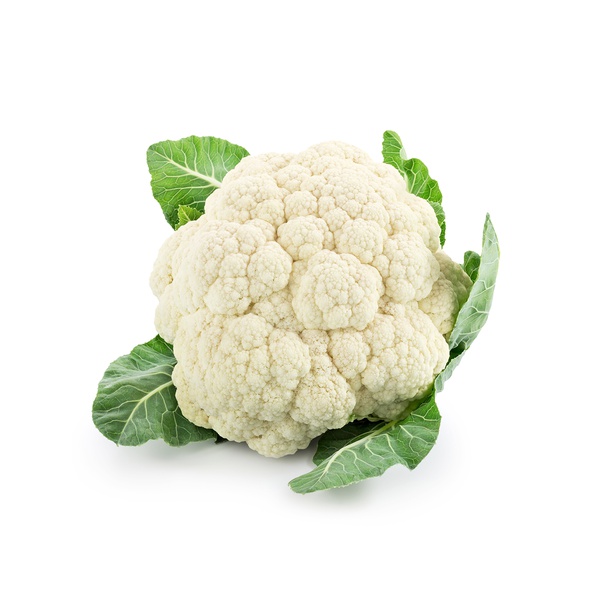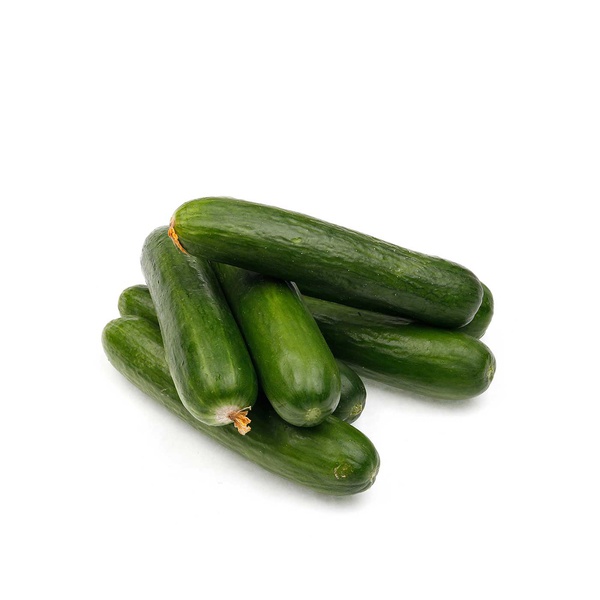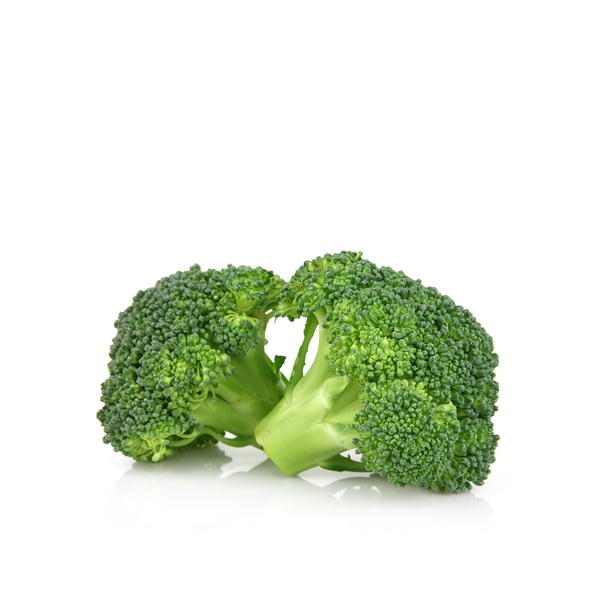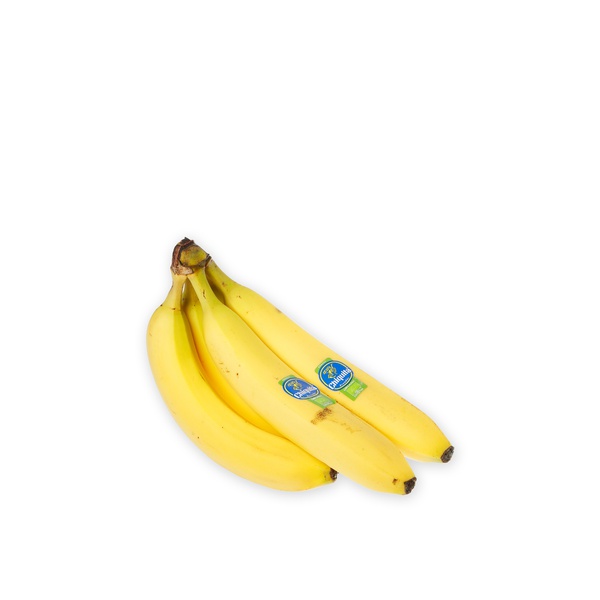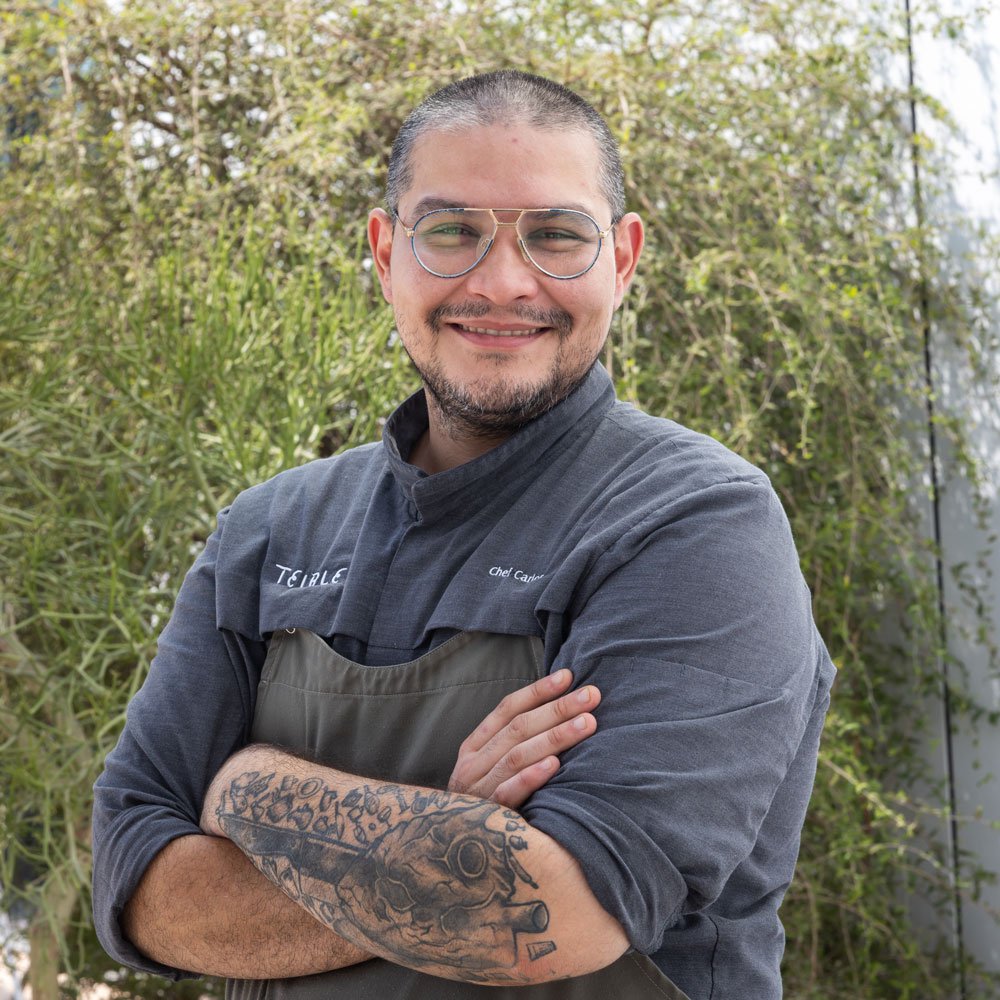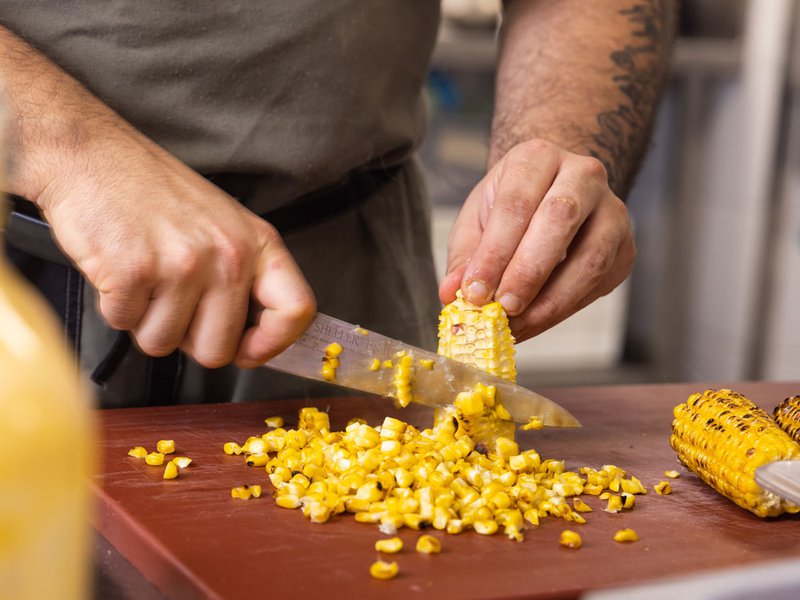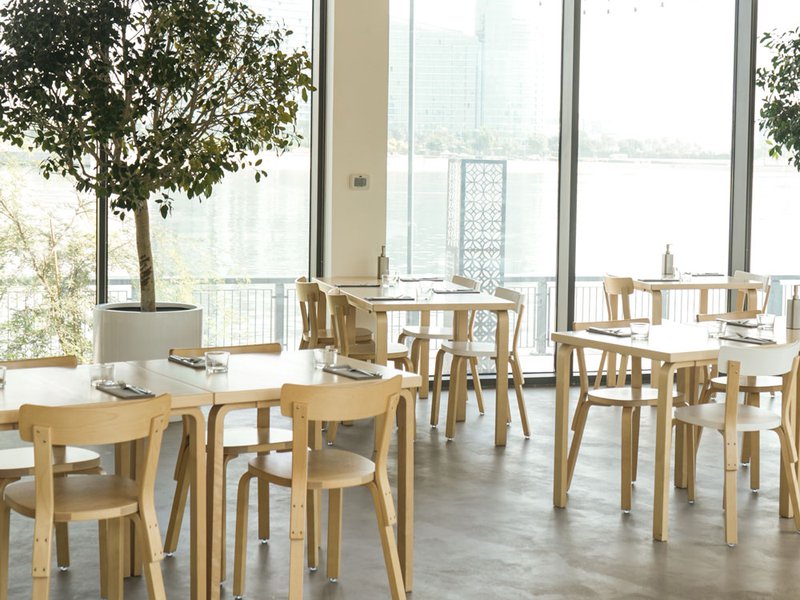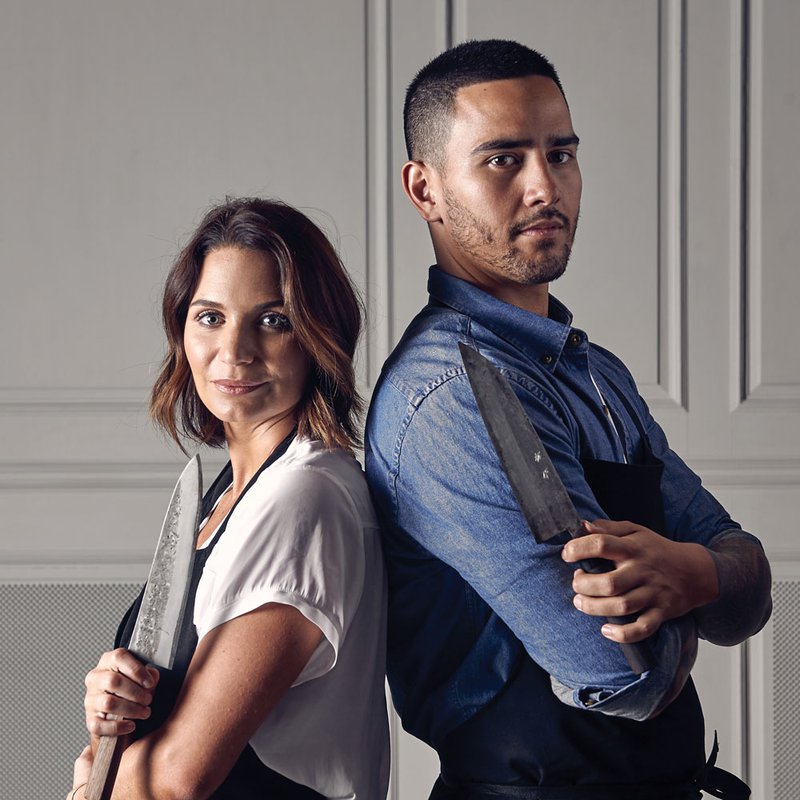Carlos Frunze, executive chef of Teible, loves fermentation for its ability to transform flavours and to ensure zero wastage in his kitchen. We discover why this Michelin Bib Gourmand restaurant has a menu that truly considers the environment
This chef, born to Russian and Mexican parents, grew up in Dubai, carried out compulsory military service, broken his spine, had multiple body parts reconstructed, and in the first few months of operating his restaurant, won a spot in Michelin’s Bib Gourmand. Meet Carlos Frunze, executive chef of Teible.
It sounds like an ‘only in Dubai’ story, but perhaps, because it really is.
After more than three years of serving in the military, Carlos wasn’t sure what to do next. His mother said, “Why don’t you become a chef, like your grandfather?” He liked that idea. One Bachelors Degree in Culinary Art & Culinology and a Masters in Science, Nutrition and Culinology later, Carlos went out in the world of hospitality. With experience at Kuala Lumpur’s grand damme, The Majestic Hotel, French Laundry, Per Se and more, Carlos returned to Dubai in 2015 and worked with the likes of Tom&Serg, Surf House Dubai and 3 Fils, before eventually launching Teible.
Teible, developed by Peter Ahn, who is also the founder of ramen hotspot Yui, opened at the end of January 2022 at Jameel Arts Centre. Carlos says, “I met Peter and he told me he wants to focus on local seasonal food.” The restaurant, offering a fine dining-style degustation menu, prides itself on its seasonality and sustainability. Carlos confirms that approximately 95 per cent of the menu is sourced from local ingredients.
Being able to source bounty from regional land and sea has led to many discoveries for Carlos and his team as well. “I discovered a lot of fish. We found mahi mahi, barramundi, five different types of snappers, pink mullet and many different types of shellfish. And they all taste amazing.”
It’s not just about seasonality, Carlos asserts, but also about a hyperfocus on one ingredient and what can be done with that. “For example, this season is about seafood. So how can we discover more seafood? What can we do to preserve the flavours?” he says.
“We tried fish garum (fermented fish sauce) with four different fish and one of the best fish ended up being mackerel,” he adds. Carlos worked with Dibba Bay Oysters to make his own oyster sauce, curated kingfish eggs to make his own bottarga and also created mahyawa, a local fish sauce. His creativity can be challenging; he says, “I don’t know where to put this dish (mahyawa). We experiment with so many things that I don’t know where to place it and how to use it at that time.” His preservation extends to as many ingredients as possible, preserving fruits and creating jams and syrups, and saving the seeds for his farmers to sow.
The executive chef confirms he has a direct relationship with a number of farmers and works with them to figure out what can be grown locally. With his team, he also visits Dubai’s fish market three times a week to see what is available. “This region, this country is so rich with ingredients, we just need to use it,” he adds.
His experiments with fermentation involved creating ‘fake Parmesan cheese’ made from local feta cheese, using shio koji (a grain-based fermentation) made from Egyptian rice, in-house buttermilk and creating a ‘milk’ from fig leaves that almost tastes like coconut.
Using every part of an ingredient is important to not just Carlos, but his team. Ingredients used in the savoury section of the menu often find their way through to desserts; Carlos shares how fennel is used by him as well as his pastry chef Sheerin Ghaffar. She’s also been instrumental in launching the restaurant’s vegetable garden. His meticulous attitude towards zero waste has gotten to a stage where, Carlos says, “In the kitchen, as per our last report, we had three-and a-half per cent of wastage.”
When asked to describe his cuisine style, he calls it ‘renegade’. Carlos says, “I grew up in Dubai. I have a lot of friends, so one day I ate Moroccan food. Another day I ate Palestinian food and the next day I tasted Indian food. Then I ate Japanese food and Korean food. How do you think that influenced my cooking? I mix everything. I want to do cuisine that doesn’t have identity – a renegade.”
His vision is paying off. Within a few months after opening, the restaurant was rated in Gault&Milau and listed in Michelin’s inaugural Bib Gourmand in Dubai. “It’s beautiful, it’s a dream for every chef... Michelin is our Oscars, our Olympics medal, it’s everything.”
What’s next for Teible? Its latest menu is seafood-themed and Carlos reveals a mushroom menu is also forthcoming. The restaurant and kitchen have recently undergone an interior refresh, which includes significant changes made from a sustainable standpoint. About this, he adds, “There’s a lot of things we are changing; these are small. These changes matter. I want to make hospitality a no-wastage place.”
Carlos concludes, “Everything is possible, you just need to make an effort. Don’t be lazy, just do it.”
